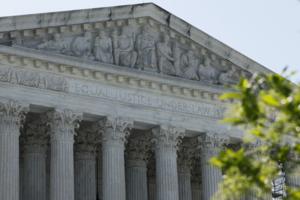Politics
/ArcaMax

Trudy Rubin: Trump's toothless threats against Putin will do little to end the war
LONDON — In case anyone believes President Donald Trump has revised his policy toward Vladimir Putin’s war on Ukraine, don’t be fooled.
True, the president is piqued because Putin refuses to agree to Trump’s Nobel Peace Prize plan for a ceasefire with Ukraine. The Russian leader has been deluging Ukraine’s cities with drones and ...Read more
COUNTERPOINT: One Big, Beautiful Bill is robbing working-class Americans
The “One Big, Beautiful Bill” that passed through Congress is a raw deal for working-class Americans. It should be called the “Billionaire Bailout Bill.” At the center of the bill is a cruel tradeoff: deep Medicaid cuts that rip healthcare away from millions in exchange for tax breaks and corporate handouts to the top 1 percent. It spurs...Read more

Commentary: Stunts in LA show Democratic states and cities that Trump's forces can invade anytime
Early this month, the U.S. military and masked federal agents from Immigration and Customs Enforcement and from Customs and Border Protection invaded a park near downtown Los Angeles — ironically, a park named after Gen. Douglas MacArthur. They came ready for battle, dressed in tactical gear and camouflage, with some arriving on horseback, ...Read more

George Skelton: Straight-shooting adviser George Steffes always had Reagan's ear
SACRAMENTO, Calif. — If there were more people like George Steffes in politics, the public wouldn’t hold the institution in such low esteem.
There’d be a lot less bull and much more thoughtful debate.
Paralytic polarization would give way to problem solving.
Steffes was the kind of person who people profess to want in the halls of ...Read more

Commentary: Powell put the Fed and taxpayers in the red
Despite losing $235 billion, Federal Reserve Chairman Jerome Powell somehow still has a job—for now. His mismanagement of the Fed has not only badly hamstrung monetary policy for years but has stuck the taxpayer with a massive bill atop a general cost-of-living crisis. It’s no wonder calls for his resignation are growing.
While at the Fed�...Read more

Mark Gongloff: The flash-flood era is here, and we're not ready
New York City’s subway system is mainly known for moving millions of riders every day and scaring the U.S. transportation secretary. But every so often it also becomes the world’s least-popular water park.
Instagram was rife this week with unnerving videos of subway riders watching high waters churn outside their train cars after a brief ...Read more

Mark Z. Barabak: Newsom threatens Texas over power grab. He's blowing smoke
Imagine a Washington in which President Donald Trump was held to account. A Washington in which Congress doesn't roll over like a dog begging for a treat. A Washington that functions the way it's supposed to, with that whole checks-and-balances thing working.
Enticing, no?
Democrats need to win just three seats in 2026 to seize control of the ...Read more

Editorial: Congress should subpoena Ghislaine Maxwell
On Tuesday, Republican Rep. Tim Burchett issued a formal request to House Oversight Committee Chairman James Comer to invite Ghislaine Maxwell to testify publicly about Jeffrey Epstein’s crimes and connections.
Given the intense public interest on this topic, Rep. Burchett’s call should be honored by Rep. Comer despite the political ...Read more

Editorial: Bondi's mishandling of Epstein case is her M.O.
The White House is in full-blown turmoil as some of President Trump’s favorite people have the pitchforks out for his attorney general, Pam Bondi.
The Jeffrey Epstein conspiracy theories that helped him ooze his way back to the White House are back like vultures. That is well-earned karma for Bondi. She promised Conspiracy World to serve up ...Read more

Commentary: 'We'll survive. Iran always survives.' Israel's attacks as seen through journal entries
These journal entries, which have been lightly edited, detail the day-to-day experiences of my family in Iran during Israel’s attacks and the connections to their children abroad. I received my family’s approval to share them.
Part I: One-way ticket out of Tehran, but never out of Iran
Sunday, June 15
We held a call with my cousins abroad...Read more

Editorial: Presidential race a layup for GOP in 2028
Stick a fork in Democrats, they are done!
Former Vice President Kamala Harris is the 2028 Democratic presidential primary frontrunner, according to a poll released this week, the New York Post reports.
It gets worse.
Pete Buttigieg and California Gov. Gavin Newsom come in next.
Sen. Cory Booker, D-N.J., and fellow Tri-State agitator Rep. ...Read more

Editorial: A city where every teen can find work -- that should be the goal
The city of Chicago is connecting more young people with work than it has in years.
The mayor’s office recently announced that nearly 29,000 teens and young adults were hired this summer through One Summer Chicago, a city-led jobs initiative for people ages 14 to 24. That’s welcome news: Research shows summer jobs can reduce youth violence...Read more

Patricia Lopez: America's anti-immigrant fever is starting to break
Despite President Donald Trump’s decade-long demonization of immigrants, an overwhelming majority of Americans are rejecting his message.
A new Gallup poll shows that 79% of those polled — a record high — say immigration is good for the country, with only 17% saying it is bad. And the number of Americans who want less immigration is ...Read more

Commentary: Alligator Alcatraz, the concentration camp in Florida, is a national disgrace
The first detainees have started arriving at Alligator Alcatraz, Florida’s immigrant detention center in the Everglades. The facility went up on a former airstrip in eight days and will have an initial capacity of 3,000 detainees. Florida’s Republican state Atty. Gen. James Uthmeier, the driving force behind the project, posted on X recently...Read more

POINT: Trump's tax bill is built for the working class, not the donor class
President Donald Trump’s One Big, Beautiful Bill is not what you think it is. It’s not a stunt. It’s not a meme. It’s the most unmistakable evidence yet of a transformed Republican Party. To understand who benefits from this bill is to recognize the party’s new political mandate: delivering for the working class.
That is, the GOP’s ...Read more

Commentary: Uncle Sam wants you... to rat on national parks that reflect true history
Few initiatives of the Trump administration more seriously undermine our understanding of the nation’s past than Executive Order 14253 from March 27, which promises “to restore Federal sites dedicated to history, including parks and museums, to solemn and uplifting public monuments.”
The order directs the Interior secretary to cleanse all...Read more

Karishma Vaswani: Diplomatic experience is optional for the president's friends
In diplomacy, it’s not always what you know — it’s who you serve. The White House has tapped a self-professed Hooters fan and an orthopedic surgeon for two key postings in Southeast Asia, a front line in the battle for influence between the U.S. and China. The inexperienced candidates for Singapore and Malaysia are raising eyebrows in a ...Read more

Noah Feldman: The Supreme Court's silent opinions undermine its legitimacy
In an unsigned order with no explanation, the Supreme Court’s conservative majority blocked the lower court orders that had stopped President Donald Trump from shuttering the Department of Education.
The decision seems legally wrong to me, given that Congress created the department and only Congress should have the legal power to shut it down...Read more

Editorial: No one should get measles in America
There is no good reason for any American to become infected with the measles virus in 2025. Effective vaccines reduced the incidence of the disease to nearly negligible figures by the 1980s, and since a brief resurgence in the early 1990s, most years have had fewer than 100 cases across this enormous country.
This year, however, is poised to ...Read more

Commentary: What the future will say we got wrong about AI
As we look back on 1776 after the July 4 holiday, it's a good opportunity to skip forward and predict what our forebears will think of us. When our descendants assess our policies, ideas, and culture, what will they see? What errors, born of myopia, inertia, or misplaced priorities, will they lay at our feet regarding today's revolutionary ...Read more























































